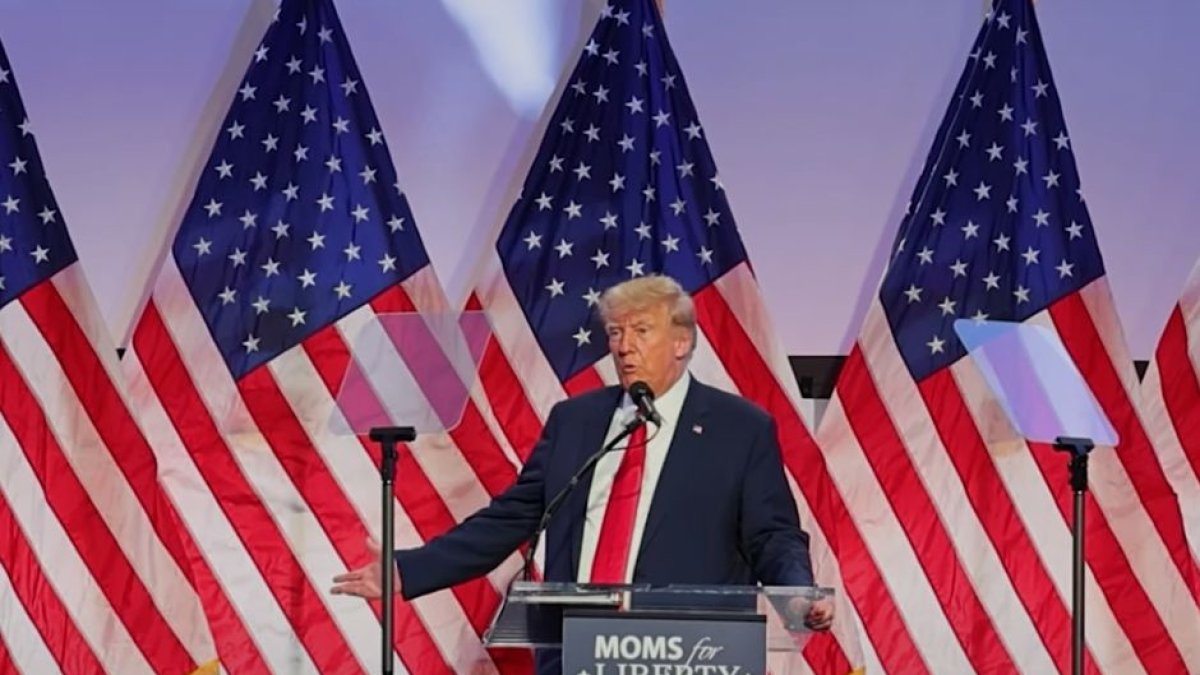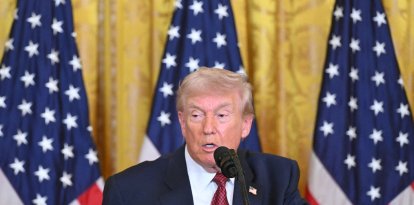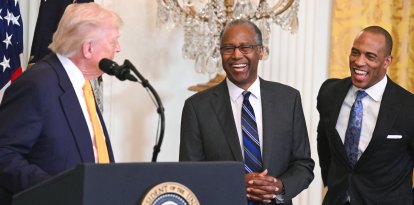Florida judge dismisses complaint aiming to ban Trump from election using 14th Amendment
After this attempt failed to implement the amendment against the former president, new initiatives promoted by citizens, organizations and public officials have sprung up throughout the country.

(Forbes Breaking News)
U.S. District Judge Robin L. Rosenberg has dismissed Florida attorney Lawrence Caplan's attempt to use the 14th Amendment to bar Donald Trump from holding public office again. Rosenberg ruled Thursday that Caplan and the other two plaintiffs were not entitled to request the court to ban the former president, because "the injuries alleged are not cognizable and not particular to them."
Caplan, Barry Butin and Michael Strianese had argued that, as American citizens and residents, they would be harmed if Trump were able participate in the primary and presidential elections after having violated Section Three of the 14th Amendment. This prohibits anyone who, having taken an oath to the Constitution, participated in an "insurrection or rebellion" or provided "aid or comfort to enemies" of the supreme law of the land from holding public office.
However, the judge stated that "an individual citizen does not have standing to challenge whether another individual is qualified to hold public office." Since these plaintiffs did not meet the requirements in the eyes of the court, the case was dismissed: "The Court concludes that it lacks subject matter jurisdiction and dismisses the Complaint."
Caplan vs. Trump (Court Lis... by Santiago Adolfo Ospital
In dismissing the complaint, Rosenberg did not have to answer key questions about the use of the constitutional amendment to ban the former president, such as whether the cases against Trump in Washington and Georgia or his participation in the events of Jan. 6, 2021, are enough to trigger the 14th Amendment. Nor did the court state if it is sufficient for an electoral official to remove him from the ballot without the need for court approval.
Caplan was not the only one, however, who has proposed using this constitutional provision against the former president. The activist organizations Free Speech For The People and Mi Familia Vota sent a letter to Florida Secretary of State Cord Byrd demanding that he activate Section Three against Trump. Nine other secretaries of state received similar letters. Initiatives across the country have put the focus on states' secretaries of state.
Secretaries of state: a step forward
"I'm talking every day with colleagues about this," Michigan Secretary of State Jocelyn Benson told ABC News. Benson acknowledged that she began discussing how to prepare for legal challenges to Trump's candidacy a year ago with her colleagues in Pennsylvania, Georgia, Nevada and New Hampshire.
Attorney Robert Davis demanded Benson declare the former president ineligible in Michigan, setting a deadline of 14 days from Monday, Aug. 28. "No matter what the secretary of state does in response to this legal challenge, there will be a lawsuit," Davis told The Detroit News. "No doubt."
In New Hampshire, Attorney General John M. Formella and Secretary of State David M. Scanlan have denied that they decided to apply the 14th Amendment against the leading Republican candidate.
In the statement, the officials did clarify that the secretary of state's office asked the attorney general's office for advice on the meaning of the amendment and its "possible applicability of the provision to the next presidential election cycle."
This occurred after attorney Bryant Messner, known as "Corky," announced that he would initiate the process to ban Trump and, supposedly, met with Formella. Messner was the Republican Party's candidate for Senate in 2020.
Arizona Secretary of State Adrian Fontes concluded that he did not have the necessary authority to ban Trump's participation in the election. He told AZCentral that the state Supreme Court had ruled that only Congress had the authority to enforce a disqualification clause. In a later interview, he seemingly left the door open: "It's still an open question. Arizona law is not the only law we have."
The office of Frank LaRose, secretary of state of Ohio, was less confident. In a press release picked up by ABC News, he called the use of Section Three against Trump a "fringe legal theory" and said he was unaware of attempts to apply it in his state.
A Republican candidate in favor of Section Three
Former Gov. Asa Hutchinson has also spoken in favor of using the 14th Amendment against Trump. During the GOP debate, Hutchinson argued that Trump should be "morally disqualified from being president again as a result of what happened on Jan. 6th."
He then said that he has the support of "conservative legal scholars" who say that the 14th Amendment could have disqualified him "as a result of the insurrection."

























